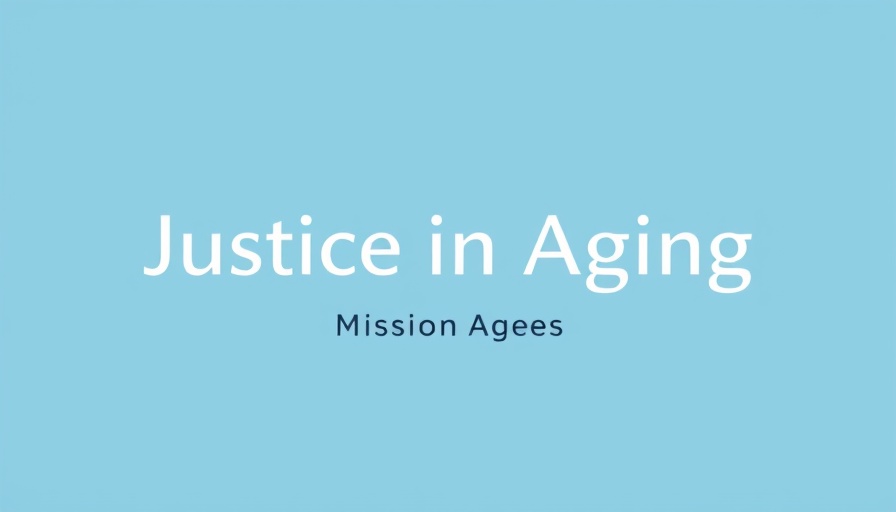
Understanding Nondiscrimination in Federally Assisted Programs
In light of growing concerns over equity and accessibility, the Department of Energy (DOE) has proposed a direct final rule aimed at reinforcing nondiscrimination in federally assisted programs or activities. This initiative has particular significance for seniors, who often rely on these programs for essential services. Justice in Aging, an organization dedicated to ensuring the rights of older adults, has submitted comprehensive comments regarding this proposal, advocating for more robust protections for elderly individuals.
The Importance of Nondiscrimination Policies
Nondiscrimination policies ensure that all individuals have equal access to federal programs and services, regardless of their race, color, national origin, sex, disability, or age. For seniors, who may face unique challenges, these policies are vital in ensuring they receive fair treatment under programs designed to assist them. Justice in Aging’s comments highlight specific areas where the proposed rule can be strengthened to strengthen protections for older adults.
Key Recommendations from Justice in Aging
Justice in Aging’s response to the proposed rule emphasizes several key recommendations. Firstly, the organization urges that definitions of discrimination include clear guidelines on systemic barriers that disproportionately affect older adults. The comments also advocate for expanded outreach, ensuring that vulnerable populations are aware of their rights and the resources available to them.
This support is crucial as many seniors may not have the same access to information as younger populations, and outreach efforts must be tailored to meet their communication needs. Additionally, the organization suggests the incorporation of a feedback mechanism, enabling continued assessment and improvement of program inclusivity.
Real-World Implications for Seniors
For seniors, the potential impacts of nondiscrimination policies are profound. Programs like low-income energy assistance and housing match support depend heavily on these regulations. If enacted effectively, enhanced nondiscrimination measures could result in more reliable access to essential services, ensuring that the needs of elderly citizens are addressed without bias.
In regions with higher populations of older adults, such as Florida and California, the implications of such regulations extend beyond individuals to entire communities. By enforcing nondiscrimination practices in federal programs, an inclusive environment can pave the way for healthier, more equitable living conditions among seniors.
Addressing Counterarguments
While the proposed rule has garnered support, some critics argue that too stringent measures may stifle programmatic flexibility. However, Justice in Aging highlights that the very essence of equity in service provision necessitates a balance between flexibility and accountability. An inclusive framework ensures that all individuals, particularly vulnerable seniors, can benefit equitably from federal programs without gaining any undue disadvantage.
Future Insights and Trends
Looking ahead, the successful implementation of nondiscrimination measures may set a precedent for similar regulatory practices across various sectors beyond just energy. The growing recognition of the importance of equity in service delivery can catalyze broader discussions on how all federal, state, and local programs can best serve aging populations.
Through continued advocacy and improvements in policy, it is possible that a nationwide standard for nondiscrimination will emerge, ensuring that the needs of seniors are front and center in governmental assistance programs.
Final Thoughts on Advocacy and Change
Advocacy groups like Justice in Aging play an essential role in protecting the rights of older adults. As more individuals become aware of their rights and the resources available to them, the potential for positive change in policy becomes immense. Moreover, senior citizens deserve to have their needs represented and prioritized within federal assistance models.
In conclusion, it is crucial for seniors and their families to engage with advocacy efforts and understand the significance of nondiscrimination in federally assisted programs. Staying informed and involved can lead to empowered decision-making and improved access to necessary resources.
 Add Row
Add Row  Add
Add 




 Add Row
Add Row  Add
Add 

Write A Comment